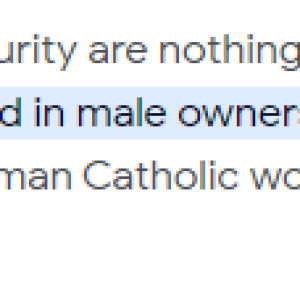paternity
Paternity law refers to body of law underlying legal relationship between a father and his biological or adopted children and deals with the rights and obligations of both the father and the child to each other as well as to others. A child's paternity may be relevant in relation to issues of legitimacy, inheritance and rights to a putative father's title or surname, as well as the biological father's rights to child custody in the case of separation or divorce and obligations for child support.
Under common law, a child born to a married woman is presumed to be the child of her husband by virtue of a "presumption of paternity" or presumption of legitimacy. In consideration of a possible non-paternity event (which may or may not include paternity fraud) these presumptions may be rebutted by evidence to the contrary, for example, in disputed child custody and child support cases during divorce, annulment or legal separation.
In the case of a father not married to a child's mother, depending on the laws of the jurisdiction:
a man may accept the paternity of the child in what is called an acknowledgment of paternity, voluntary acknowledgement of paternity or affidavit of parentage,
the mother or legal authorities can file a petition for a determination of paternity against a putative father, or
paternity can be determined by the courts through estoppel over time.Today, when paternity is in dispute or doubt, paternity testing may be used to conclusively resolve the issue.
You do not have permission to view the full content of this post. Log in or register now.
Under common law, a child born to a married woman is presumed to be the child of her husband by virtue of a "presumption of paternity" or presumption of legitimacy. In consideration of a possible non-paternity event (which may or may not include paternity fraud) these presumptions may be rebutted by evidence to the contrary, for example, in disputed child custody and child support cases during divorce, annulment or legal separation.
In the case of a father not married to a child's mother, depending on the laws of the jurisdiction:
a man may accept the paternity of the child in what is called an acknowledgment of paternity, voluntary acknowledgement of paternity or affidavit of parentage,
the mother or legal authorities can file a petition for a determination of paternity against a putative father, or
paternity can be determined by the courts through estoppel over time.Today, when paternity is in dispute or doubt, paternity testing may be used to conclusively resolve the issue.
You do not have permission to view the full content of this post. Log in or register now.
-

People Are Still Brainwash When it Comes to "******ity Myth"
It is all about control. Control when it comes to male ownership and paternity. It is a "paternal law" ruled by men which is why women are under the control of men when it comes to the sexuality of women. If women want to be free, they can be free because laws are also meant to be broken.- Asherah Goddess
- Media item
- myth ownership paternal law paternity vlrginity
- Comments: 0
- Category: Misc Audio, Image, & Video